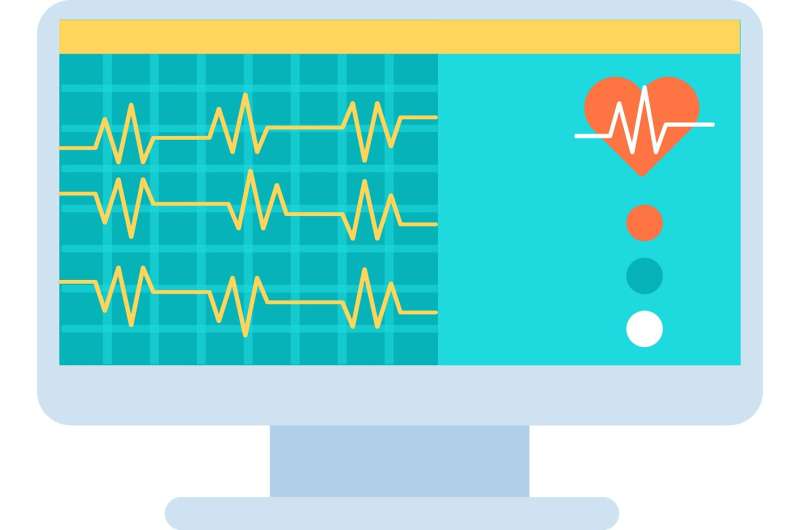Credit: Pixabay/CC0 Public Domain
A deep learning model—a form of artificial intelligence (AI)—was more accurate than the current clinical standard at predicting a person's 12-year risk of developing lung cancer. The model's predictions are based on chest radiograph images (CXRs) and basic demographic data (age, sex, and current smoking status) commonly available in electronic health records (EHRs). The findings are published in Annals of Internal Medicine.
Lung cancer screening with chest computed tomography (CT) scans can prevent lung cancer death. However, Medicare's current standard to determine who is eligible for lung cancer screening CT misses most lung cancers. Furthermore, lung cancer screening participation is poor, with an estimated less than 5 percent of screening-eligible persons being screened.
Researchers from Massachusetts General Hospital developed a convolutional neural network (CXR-LC) that predicts long-term incident lung cancer based on a chest X-ray image using 41,856 people from a large multicenter trial of lung cancer screening with chest X-rays (Prostate, Lung, Colorectal, and Ovarian (PLCO) cancer screening trial). The final model was validated in 5,615 additional PLCO participants and 5,493 persons from a second trial, the National Lung Screening Trial (NLST). The deep learning model performed better than the Medicare lung cancer screening criteria, the current clinical standard, missing 31 percent fewer lung cancers while screening the same number of people.
The author of an accompanying editorial from the National Cancer Institute discusses the researchers' findings and raises a number of issues associated with the use of AI and, more generally, data mining of EHRs to improve patient care.
More information: Michael T. Lu et al. Deep Learning Using Chest Radiographs to Identify High-Risk Smokers for Lung Cancer Screening Computed Tomography: Development and Validation of a Prediction Model, Annals of Internal Medicine (2020). DOI: 10.7326/M20-1868
Journal information: Annals of Internal Medicine
Provided by American College of Physicians





















